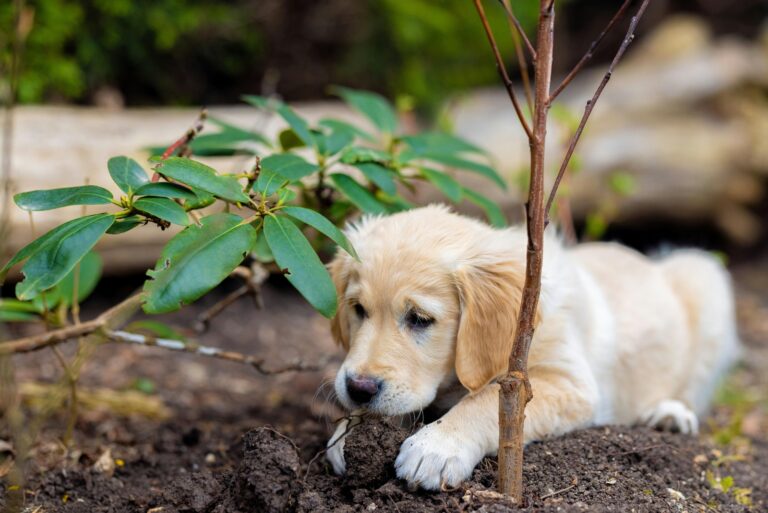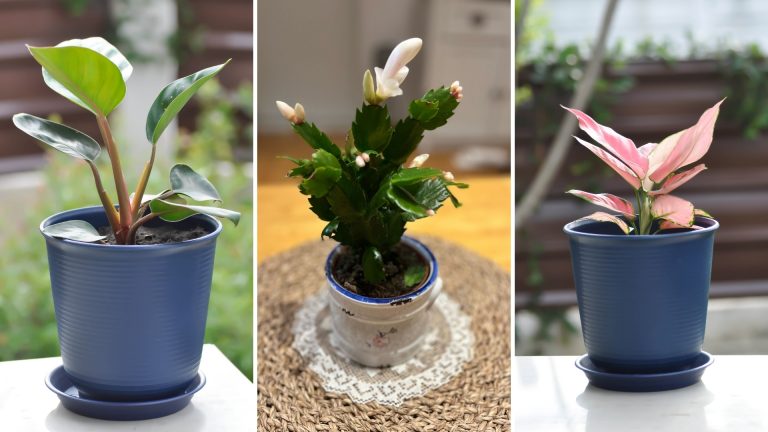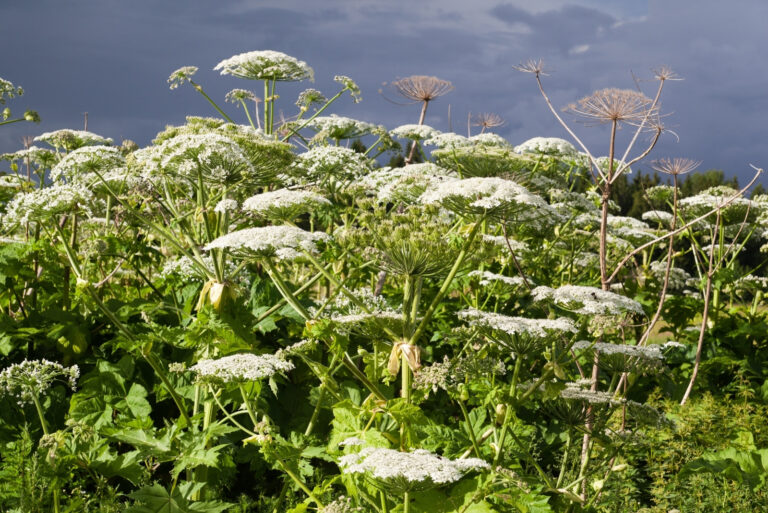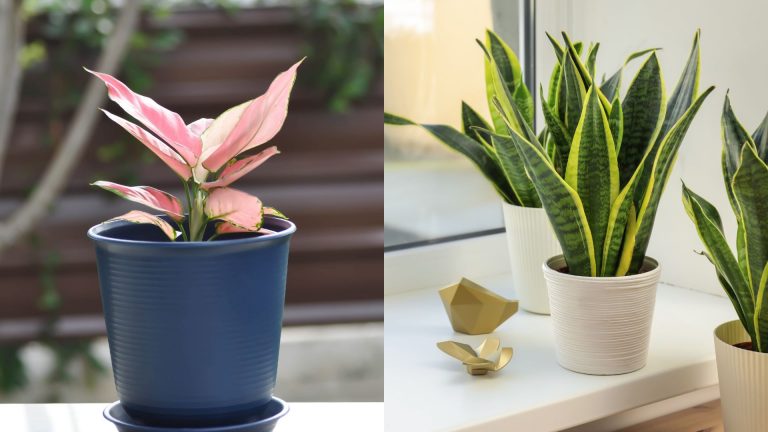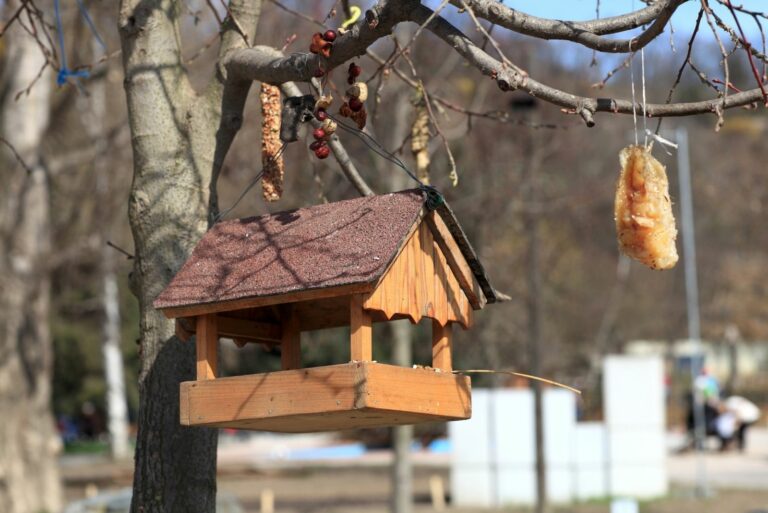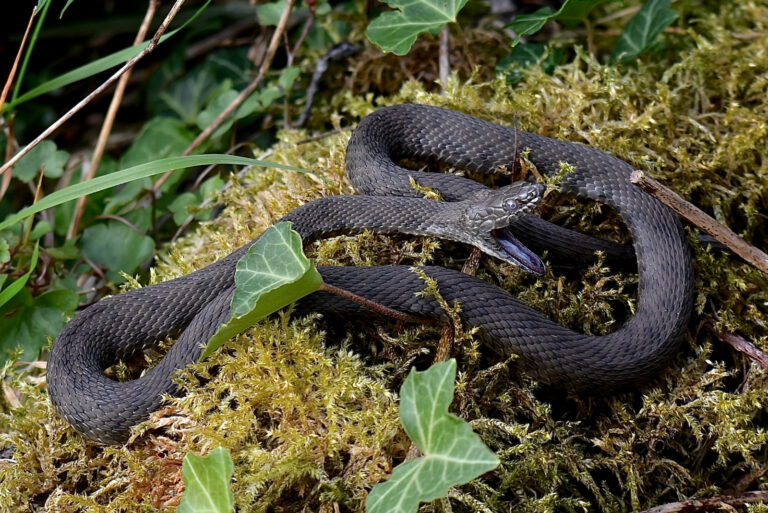15 Fruit Trees Missouri Gardeners Should Avoid
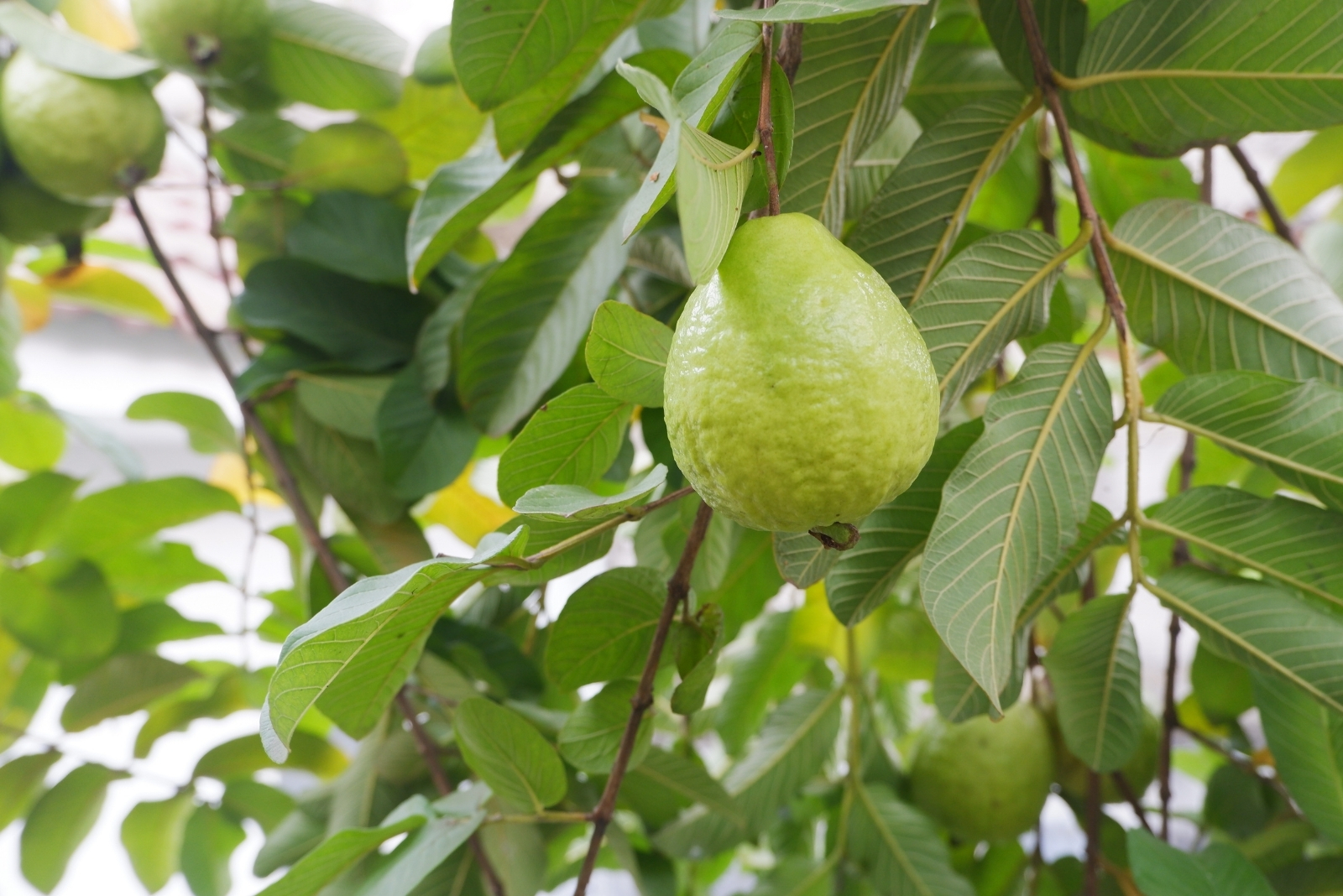
Not every fruit tree is suited to Missouri’s climate and soil. These 15 examples tend to struggle despite the best care.
Knowing what to skip can save time, money, and frustration. Choose wisely for a garden that thrives without the extra hassle.
1. Citrus Trees
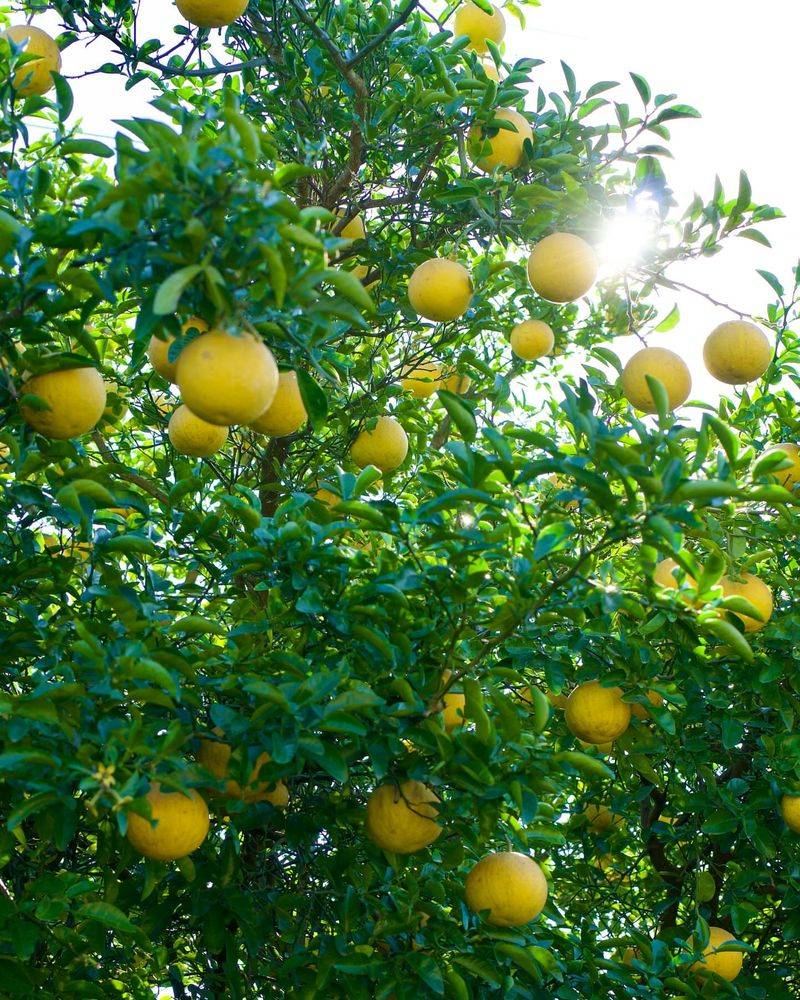
Winter temperatures in Missouri regularly plummet below what citrus trees can handle. Even with protection, lemons, limes, and oranges will suffer severe damage or die completely during our cold months.
Container growing isn’t a reliable solution either, as most Missouri homes lack the humidity and light these tropical trees need to thrive indoors.
2. Avocado Trees
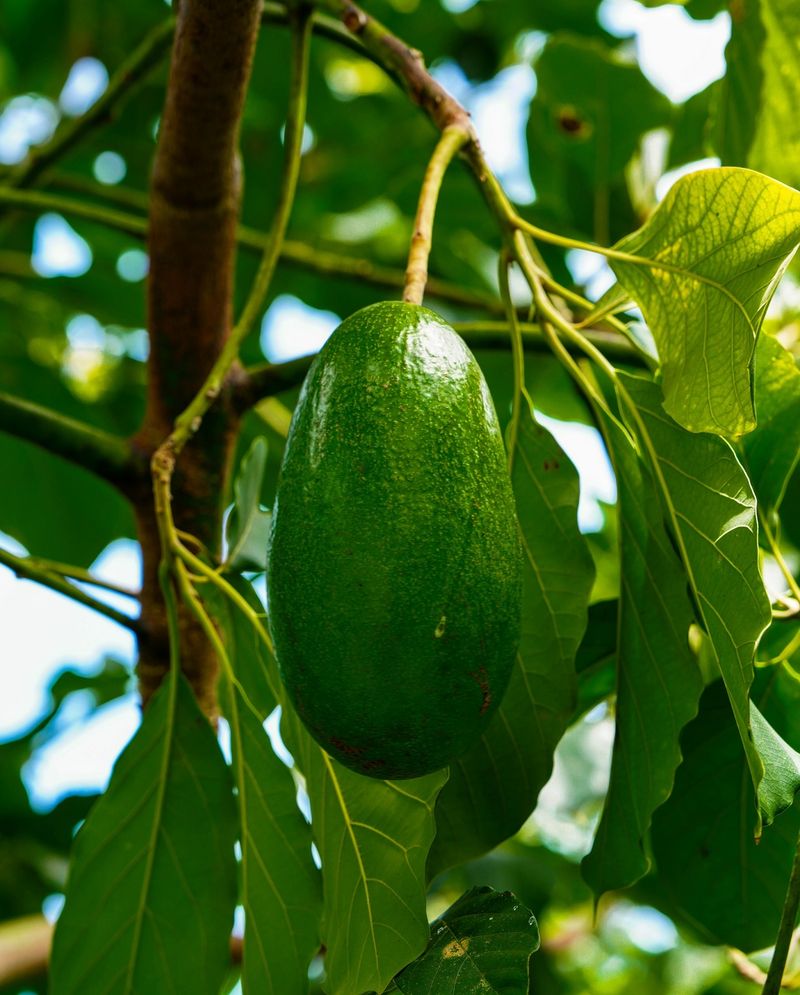
These popular tropical trees demand warm temperatures year-round and quickly perish when exposed to Missouri’s freezing winters. The humidity levels here also don’t match what avocados need to produce fruit.
Even if you could keep one alive indoors, commercially grown avocado varieties rarely bear fruit when grown from store-bought pits, making them disappointing projects for Missouri gardeners.
3. Mango Trees
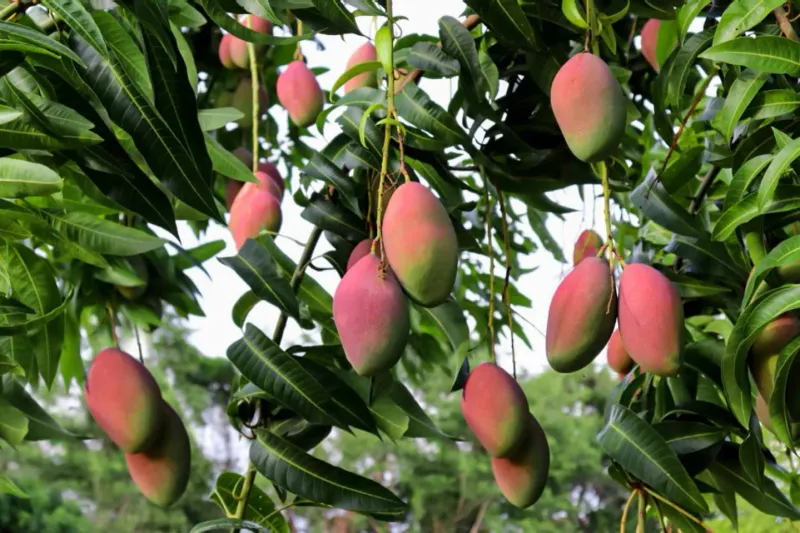
Mangoes need tropical conditions to survive, making them completely unsuitable for Missouri’s climate. These trees can’t tolerate any frost and require consistent temperatures above 40°F even in winter.
Missouri’s growing season is simply too short and cool for mangoes to develop their sweet fruits. Any attempt to grow them outdoors in our state will end in disappointment.
4. Coconut Palms
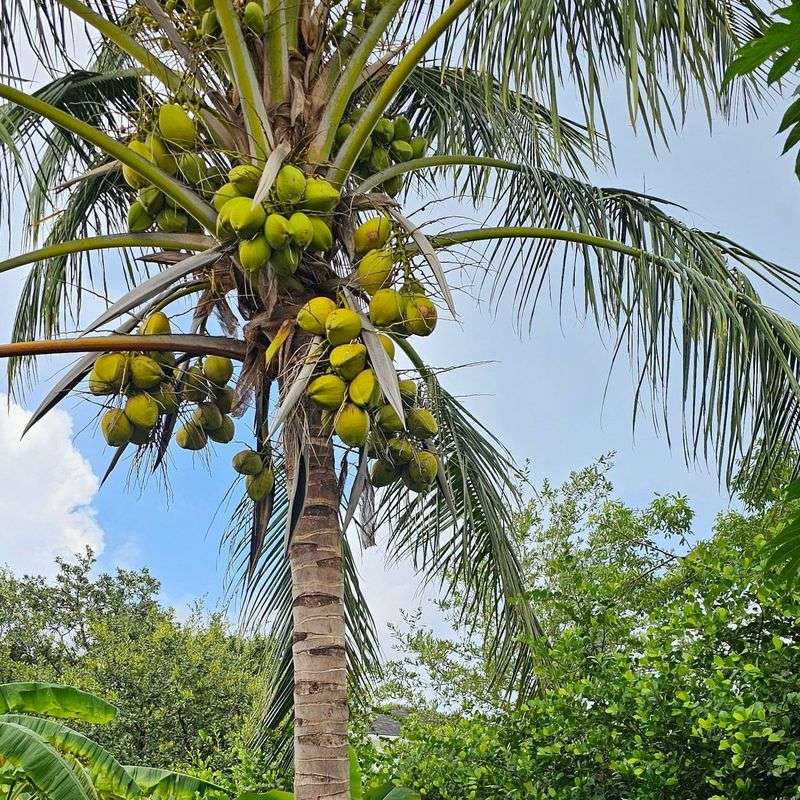
Though they create a tropical vibe, coconut palms stand no chance against Missouri winters. These coastal trees need sandy soil and salt spray – neither of which you’ll find in the Midwest.
Missouri’s clay-heavy soil would suffocate the roots even if the cold didn’t kill them first. Save yourself the heartbreak and choose trees adapted to our continental climate instead.
5. Bananas
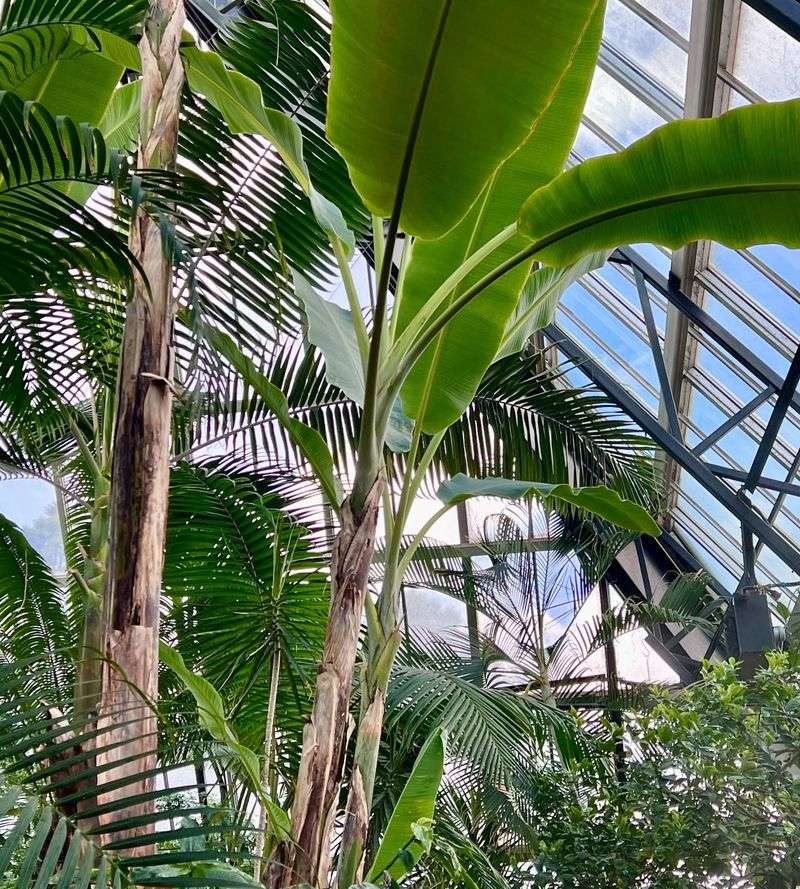
While technically not trees but giant herbs, banana plants are popular tropical fruits that Missouri gardeners often try growing. Our state’s winters will kill them to the ground every year, preventing fruit production.
Some ornamental varieties might survive with heavy mulching, but you’ll never harvest edible bananas in Missouri’s climate. The growing season simply isn’t long enough for fruit to develop.
6. Guava

Missouri’s winter temperatures spell certain death for these tropical favorites. Guava trees begin suffering damage when temperatures drop below 30°F, which happens regularly throughout our state.
Even in containers moved indoors for winter, Missouri homes rarely provide enough light for guavas to thrive. The dry indoor air during heating season creates additional stress these fruit trees can’t overcome.
7. Lychee Trees
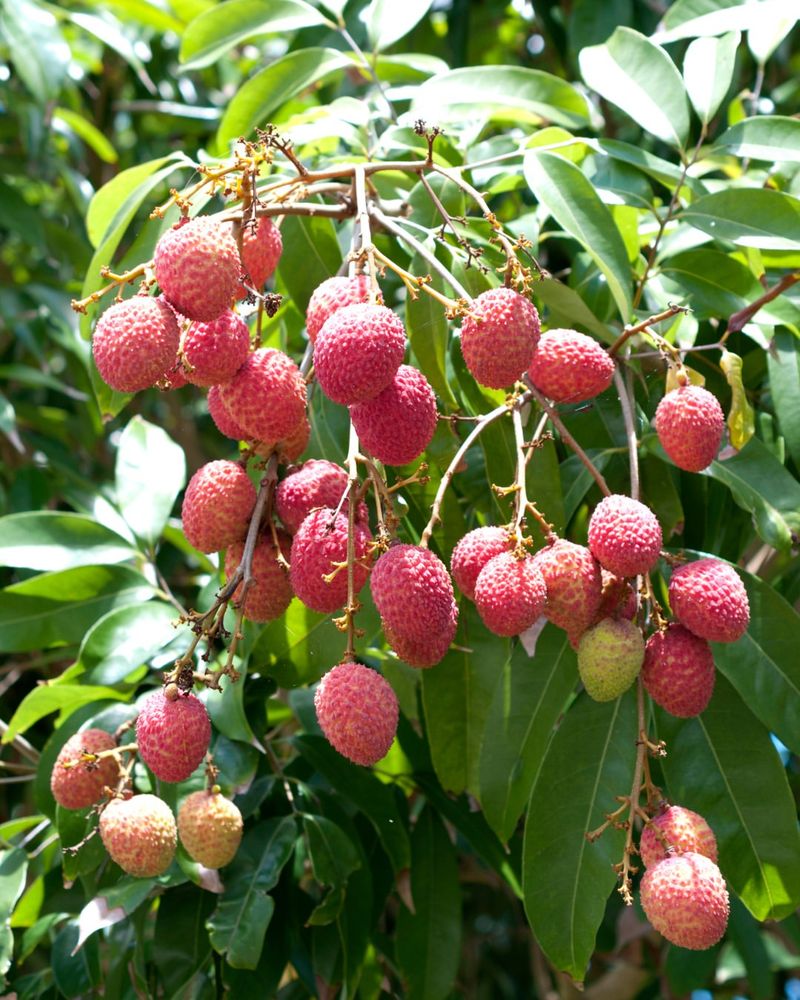
Lychee trees require consistent warmth and high humidity that Missouri simply cannot provide. These Asian fruits need temperatures that never drop below freezing, making them impossible to grow outdoors here.
Missouri’s hot, dry summers also create stress for these humidity-loving trees. Even greenhouse growing proves challenging as lychees have very specific environmental needs to produce their distinctive fruits.
8. Jackfruit
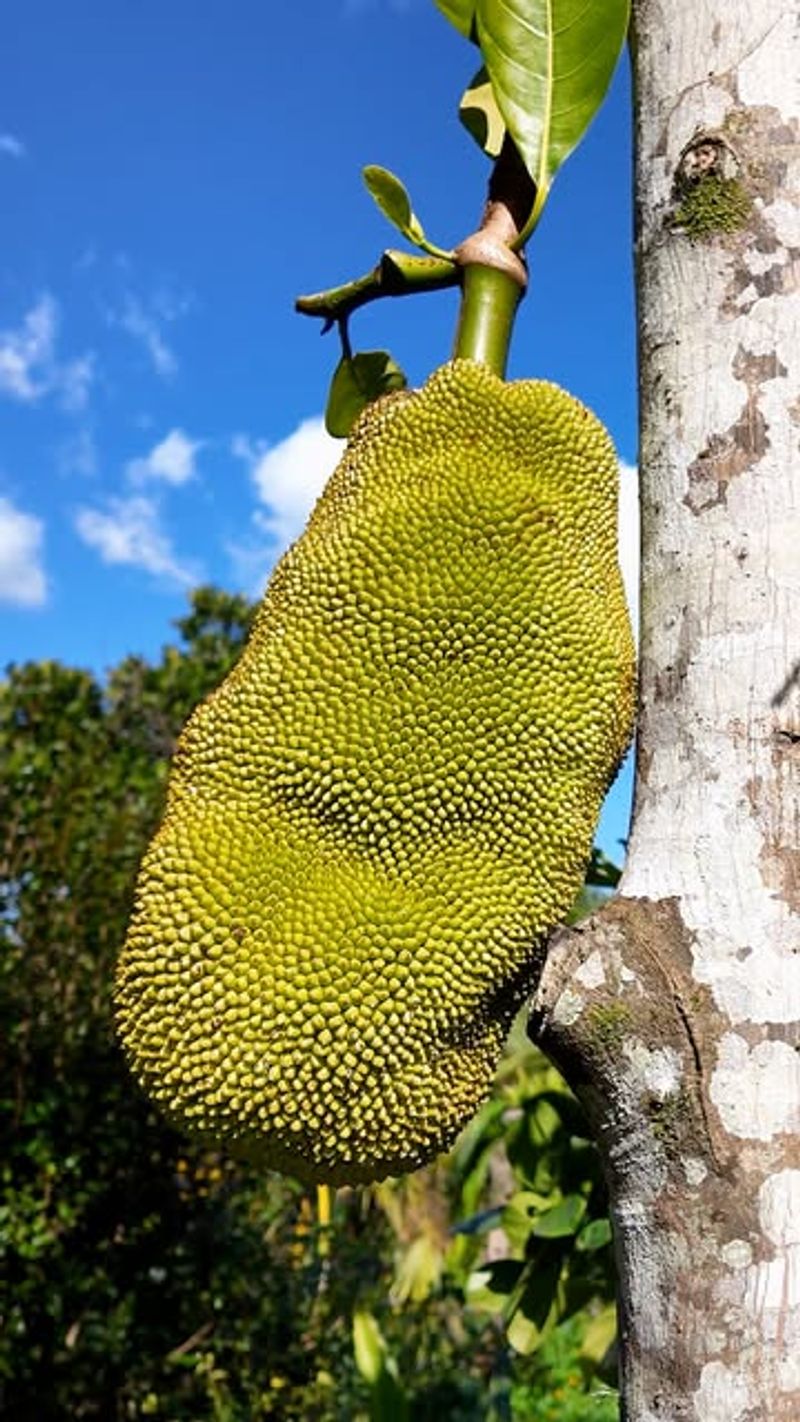
These enormous tropical fruits grow on trees that can’t tolerate any frost whatsoever. Missouri’s winter temperatures would kill a jackfruit tree within hours of the first freeze.
The massive size of mature jackfruit trees makes them impractical even for indoor growing in our state. Their slow growth and specific tropical requirements make them a frustrating choice for Missouri gardeners.
9. Papaya
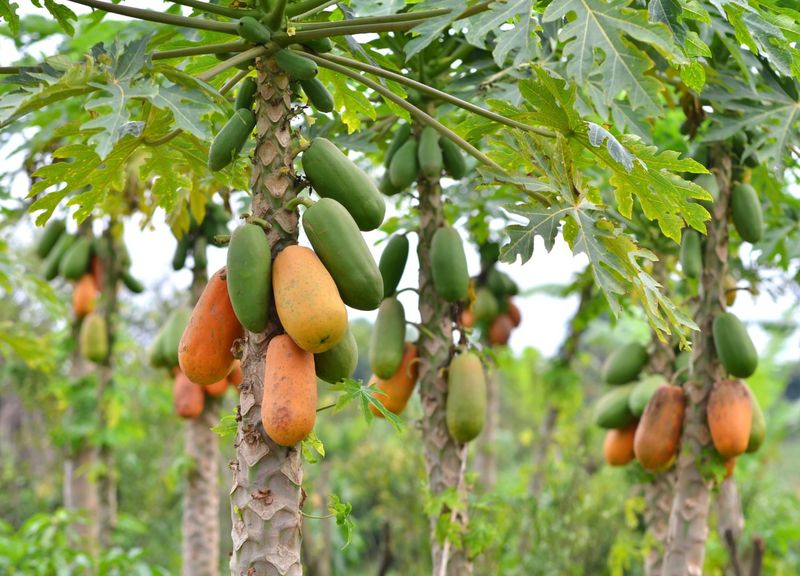
Fast-growing but extremely frost-sensitive, papaya plants die when temperatures approach freezing. Missouri winters would destroy them before they could ever produce their vitamin-rich fruits.
The short growing season in our state also prevents papayas from maturing properly. Even container-grown specimens brought indoors rarely survive Missouri’s low light conditions during winter months.
10. Olive Trees
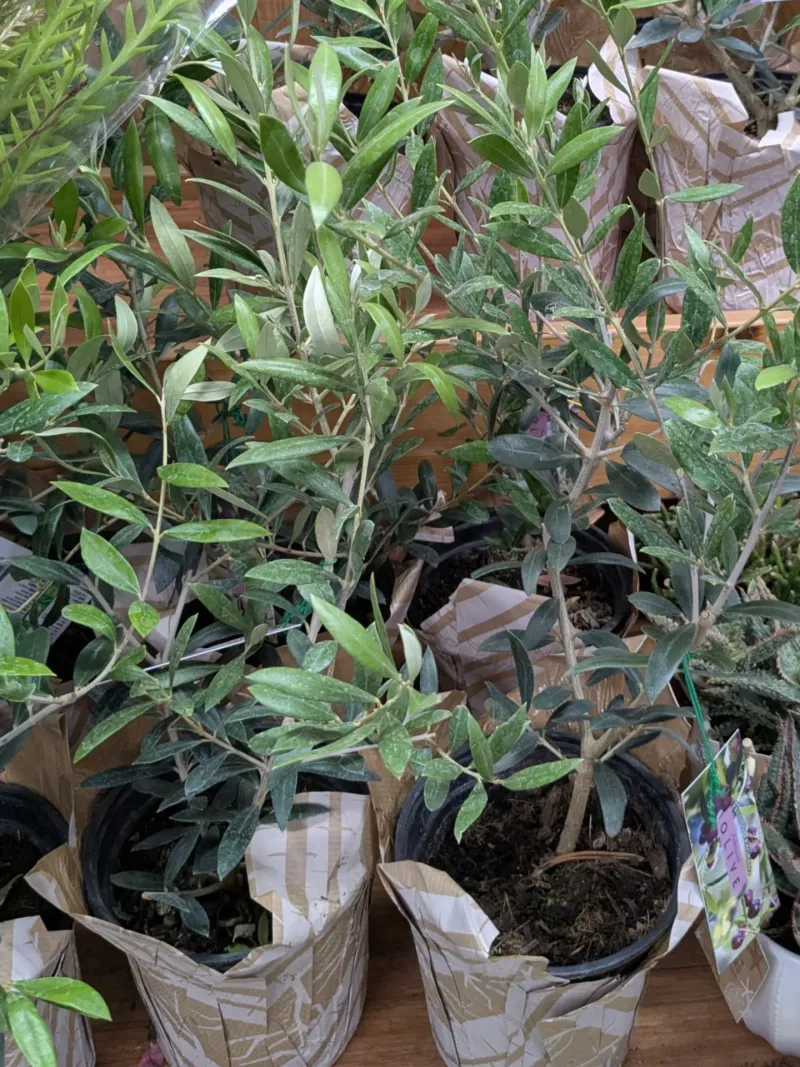
Despite their somewhat cold-hardy reputation, olive trees struggle in Missouri’s climate. They need hot, dry summers and mild winters – quite different from our humid summers and freezing winters.
Missouri’s clay soil retains too much moisture for olive roots, causing rot issues. While they might survive a mild winter, the inconsistent temperatures and late spring frosts common in our state prevent reliable fruit production.
11. Date Palms
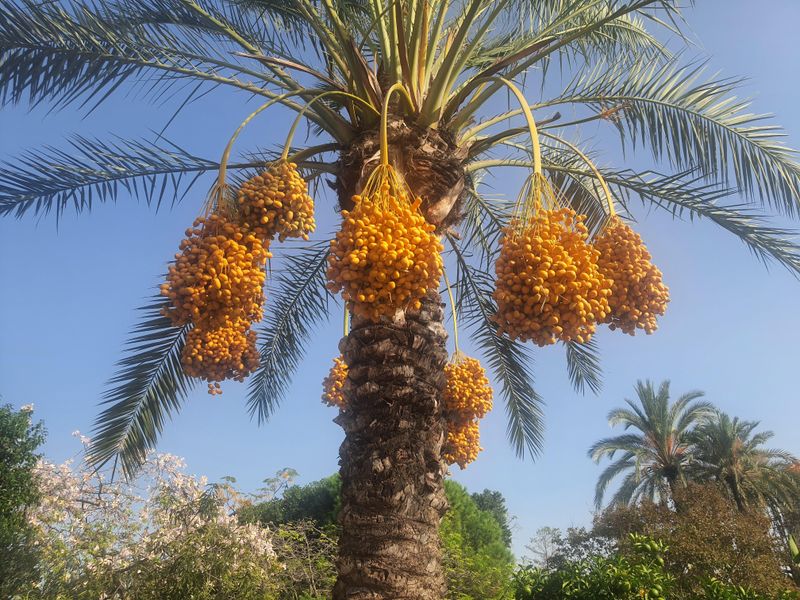
Date palms require desert conditions completely opposite to Missouri’s climate. These trees need extreme heat, very low humidity, and absolutely no frost – three things our state cannot provide.
Missouri’s rainfall patterns would cause fruit rot even if the trees could survive our winters. The clay-heavy soil throughout much of the state is also problematic for these desert-adapted plants.
12. Fig Trees (Most Varieties)
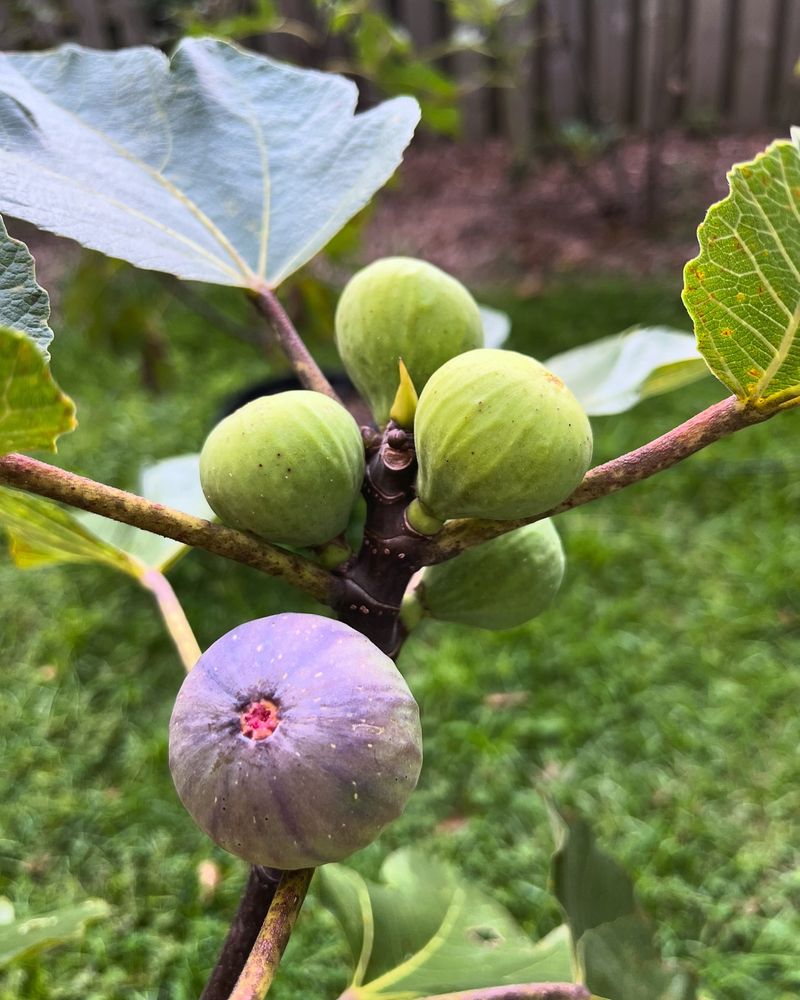
While some extremely hardy fig varieties might survive in protected locations, most common varieties can’t handle Missouri’s cold winters. The popular Brown Turkey and Celeste figs often die back to the roots here.
Missouri’s late spring frosts frequently kill new growth on figs that managed to survive winter. This prevents reliable fruit production even when the trees themselves survive from year to year.
13. Pomegranate
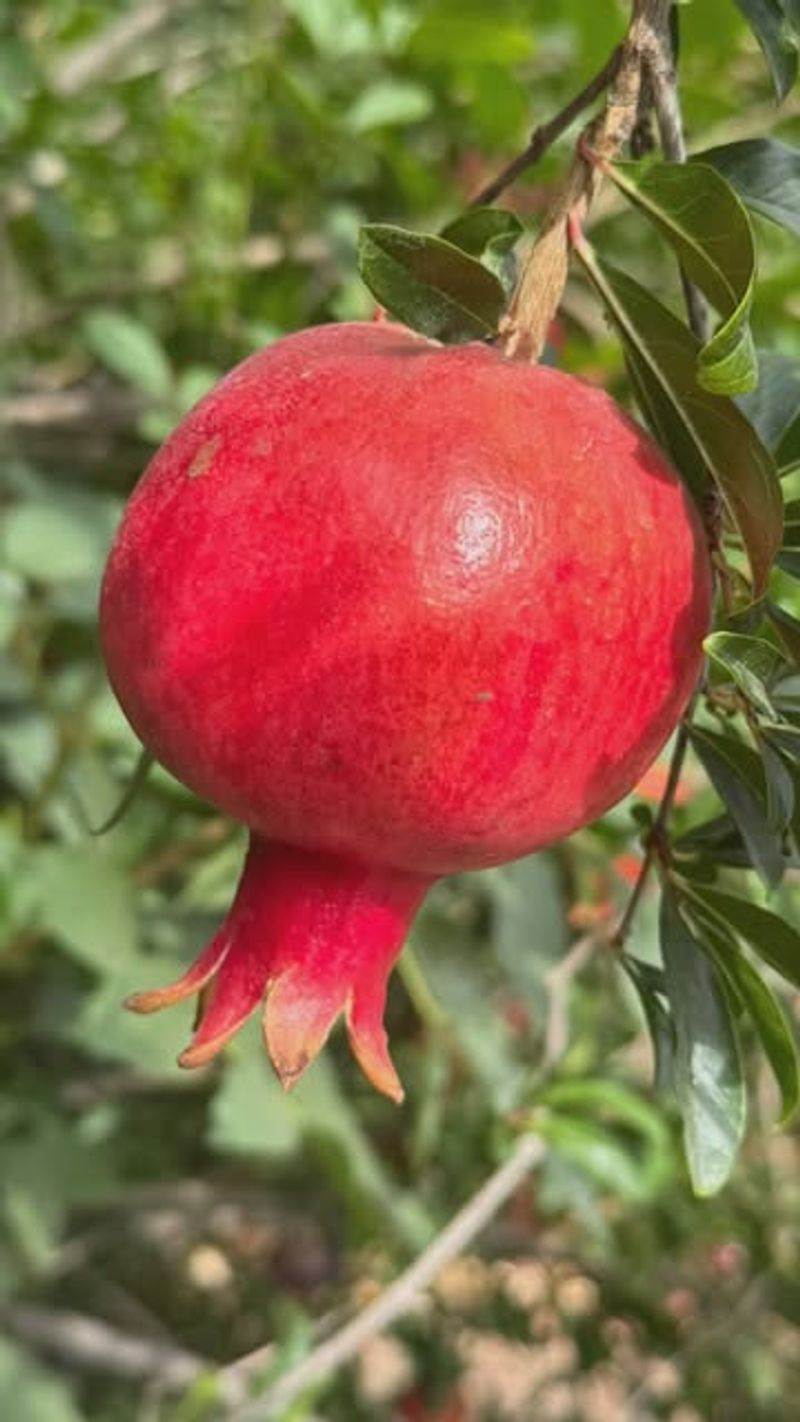
Pomegranates need long, hot summers to ripen their fruits properly – longer than Missouri’s growing season allows. While mature trees might survive mild winters, they rarely produce quality fruit in our climate.
Missouri’s humidity levels also create disease problems for these Mediterranean natives. The combination of cold winters, humid summers, and clay soil makes pomegranates a challenging choice for gardeners throughout the state.
14. Kiwi (Fuzzy Varieties)
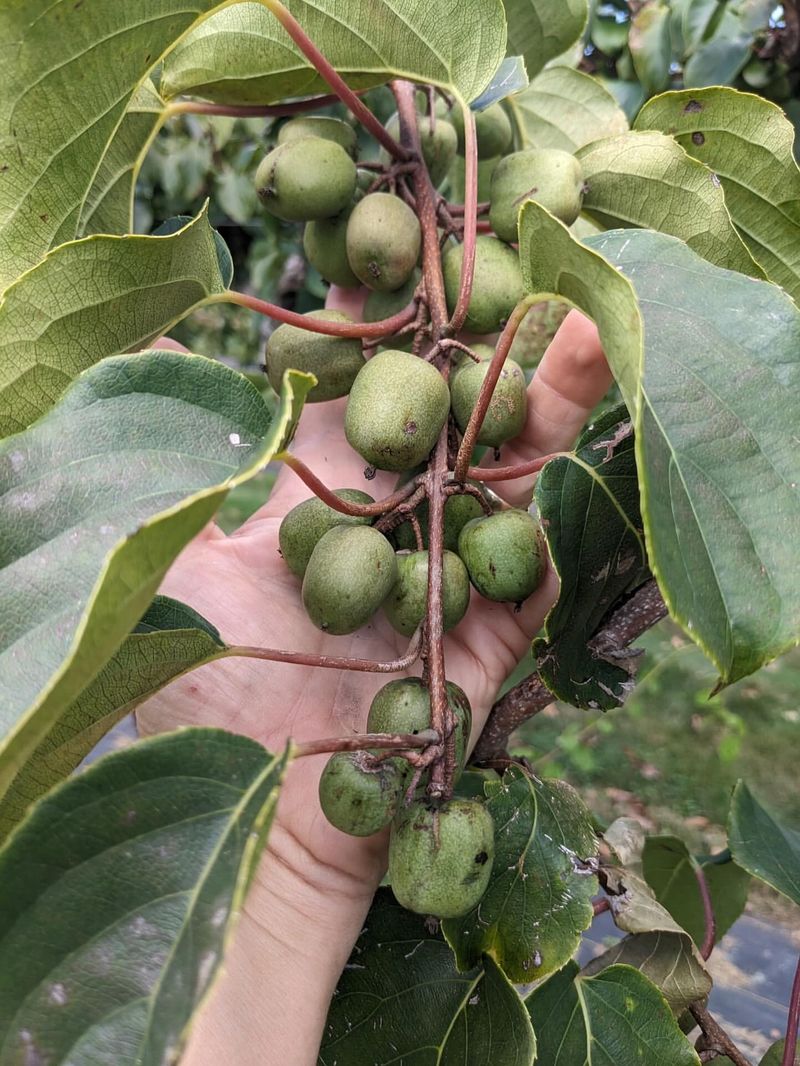
Common fuzzy kiwi varieties (Actinidia deliciosa) cannot withstand Missouri’s coldest winters. While hardy kiwi exists, the commercial fuzzy types will suffer severe damage or death during normal winter conditions in our state.
Missouri’s spring weather patterns also create problems, as late frosts often kill emerging growth. The long maturation period needed for fruit ripening exceeds our growing season in most years.
15. Passion Fruit
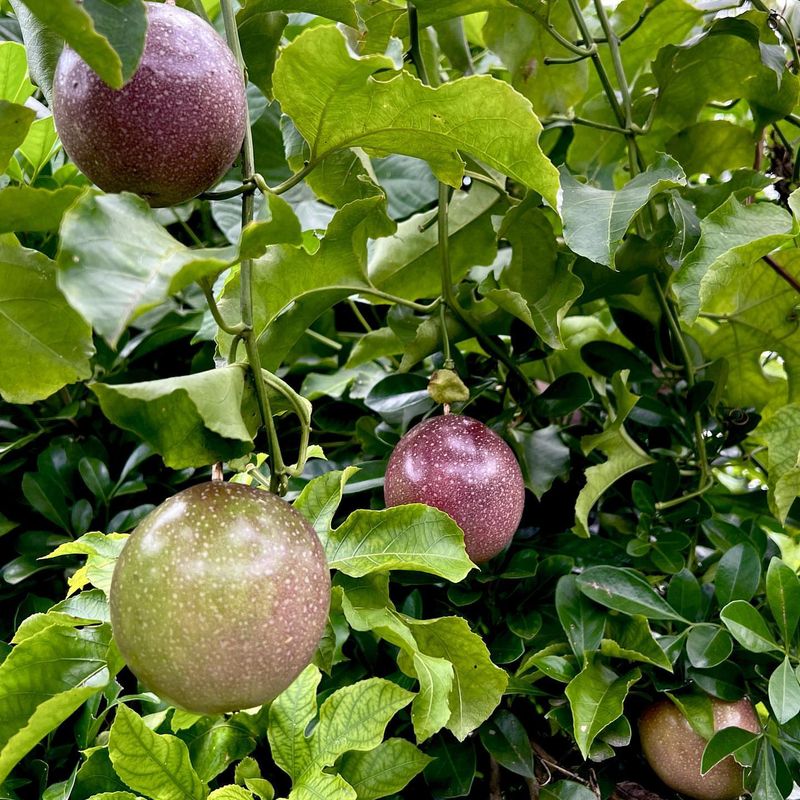
Though technically a vine, passion fruit is often grown for its exotic fruits but cannot survive Missouri winters. These tropical plants begin showing damage at temperatures below 32°F, making outdoor growing impossible in our state.
Missouri’s growing season is also too short for proper fruit development. Even if protected during winter, the plants rarely produce well in the inconsistent conditions our climate provides.

